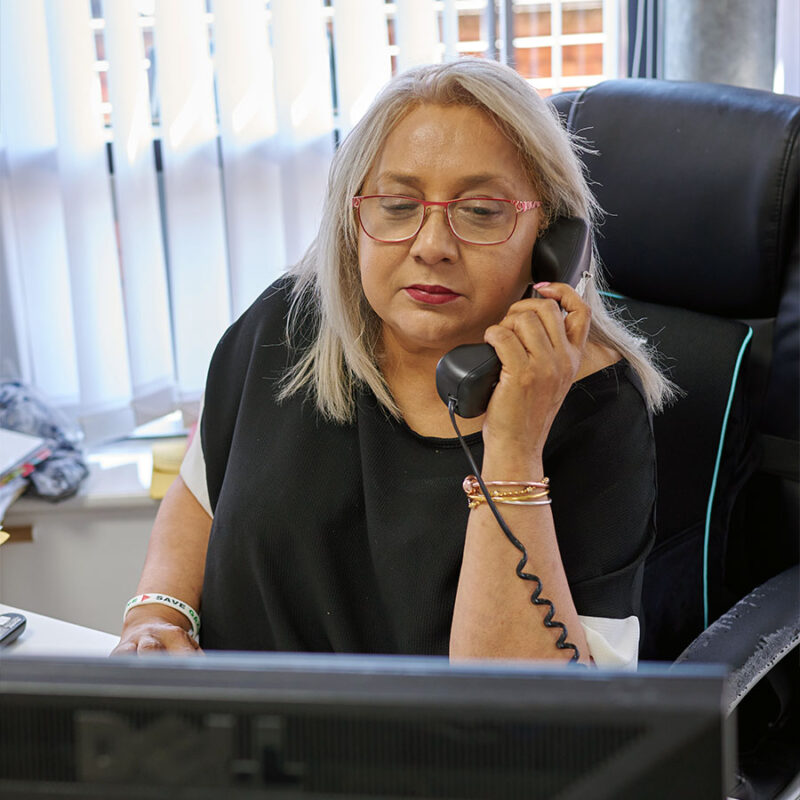Can I apply for a Spouse Visa Extension?
You can apply for a Spouse Visa extension before your current visa expires. The extension allows you to stay in the UK for an additional 30 months, helping to maintain your lawful status in the country while you continue to live with your spouse.
To apply for an extension, you must demonstrate that you still meet the requirements of the initial visa, such as having a genuine and subsisting relationship with your spouse, and that you can financially support yourselves without relying on public funds. It’s crucial to submit your application before your current visa expires, as applying after the expiration date may lead to complications, including a gap in your immigration status.
Once granted, the extended visa will allow you to continue living in the UK. After completing the required period of residence, you may be eligible to apply for Indefinite Leave to Remain (ILR).
Why Use Our Spouse Visa Solicitors
Our spouse visa lawyers have the expertise in applying for spouse and partner visas and will help you decide the right visa option and strategy by:
- Making sure all the necessary documentary evidence is submitted.
- Assisting you as you fill out your UK spouse visa application, guiding you through each section.
- Creating you a strong letter of representation to accompany your application and sponsorship if required.
- Coordinating with the Home Office until a decision is made.

FAQ's
You will need to fill out the Form FLR(M). You can do this online, and you will need to pay the relevant fee. As part of the application process, you must supply your most recent passport, travel document or national identity card for yourself and any dependents listed in the application form. This is to prove your identity and nationality, unless you cannot access these documents for reasons beyond your control
Complete all sections of the form and ensure the declarations are signed by yourself and your sponsor.
To successfully obtain an extension to your UK Spouse Visa, you must meet the following conditions:
- You were initially granted leave under the spouse category
- You will be living with your sponsor in adequate accommodation
- Your sponsor earns a minimum of £18,600 per year (more if you have children)
- You meet the minimum requirements for English language
You must be able to show evidence of all these requirements when you apply for your Spouse Visa extension.
To be granted a Spouse Visa extension, you must demonstrate that you are in a ‘genuine and subsisting’ relationship with your spouse, who either:
- is a British citizen
- is present and settled in the UK with either proof of permanent residence or indefinite leave to remain
- or has refugee status with humanitarian protection in the UK
Your relationship should be legally recognised as either a marriage or a civil partnership. If neither of these apply, you must prove you have been in a relationship akin to a marriage for 2+ years. You must also prove that you have lived with your spouse for your entire UK residency so far, and that you plan to continue cohabiting indefinitely.
You and your spouse/partner must have a combined annual income of £18,600 or more. If you have a child, this amount increases to £22,400, and it goes up by £2,400 for each additional child. A ‘child’ is defined as anyone under 18 who is dependent on you/your partner.
The income requirements can be met through your spouse/partner’s employment, your employment (if you have permission to work in the UK) or a combination of both. Income can also be combined from different sources, including pensions and maternity allowances. Cash savings of £62, 500 can be used in place of income.
If your spouse received a specified benefit such as Carer’s Allowance or Disability Living Allowance, you will not be required to meet the minimum income threshold.
Please note that the financial requirements can be complex. It is advisable to seek expert advice on your circumstances.
Applicants for a Spouse Visa extensions must demonstrate that they meet the standard of A2 level in English speaking and listening. This is defined in the Common European Framework of Reference for Languages. There is an English language test in speaking and listening which can be taken.
You will not be subject to the English language requirement if you are a national of an English-speaking country (such as Canada or Australia), if you are aged 65+, or if you have a physical/mental condition that renders you unable to meet this requirement.
The form you must complete to apply for a Spouse Visa extension is Form FLR(M). The form can be completed online via the government’s website. If you are hoping to extend your stay indefinitely, you will need an entirely different form with different requirements.
To complete the form, you will need the following supporting documents:
- Your current passport or equivalent travel documents
- Your marriage/civil partnership certificate
- Details of any criminal convictions (where applicable)
- Evidence that you have been cohabiting with your spouse in the UK continuously since you previously obtained your Spouse Visa
- National insurance number
- Details of your UK accommodation
- Bank statements and other evidence of salary to prove you meet the income requirements
- Your sponsor’s British passport, or their Indefinite Leave to remain documents
- The details of children who are part of the application
As previously mentioned, you will need to head to the government’s website to fill out the Form FLR(M). You should gather all your documents beforehand so that you are fully prepared. If you choose to fill out a paper version of the form, it will need to be sent to the Home Office.
You must make the full payment once the application is ready to submit. Failure to make the full payment will result in automatic rejection of your application. Standard applications should be processed in no more than 8 weeks. However, you can pay for priority service to get a decision within 1 working day – this costs an additional £610.
If you do not have a right of appeal but feel that the Home Office decision unreasonable then you could make an application for a Judicial Review to be undertaken. Be advised that this is a complex and lengthy process.
If you believe your application has been refused unfairly, there is usually a route to appeal against the Home Office’s decision. The usual routes for this are to make an official appeal or request an administrative review. You will be told in your rejection letter whether either of these options are available to you. No admin review available in spouse cases
If your application is declined, your rejection letter will inform you of the options available to you. If the reason for the refusal is obvious, the best move is to rectify the problem and submit another application.
If you believe your application has been refused unfairly, there is usually a route to appeal against the Home Office’s decision. The usual routes for this are to make an official appeal or request an administrative review. You will be told in your rejection letter whether either of these options are available to you.
The final option is to have a Judicial Review undertaken. Be advised that this is a complex and lengthy process.
Our lawyers are fully accredited ILPA immigration experts with over 25 year’s experience in immigration law. We work closely with you to ensure your application is correctly filled in with all the required documentation. We have assisted hundreds of clients in obtaining successful outcomes with over a 98% success rate.
When you choose Optimus Law, you can have faith that your best interests are our top priority. We will ensure the application process goes through as smoothly as possible. Contact us today to find out more.
Testimonials
Our Clients Say
If you are still not sure about choosing us, hear from our clients themselves.
Robina is a very reliable, helpful and experienced immigration solicitor in our area. I had a successful appeal with my Tier 1 applications with the help from Robina.
I’ve loved my experience with Optimus Law. Very friendly staff, easy to talk with, they follow up with you and keep you updated! And surely I will keep using their services.
I required a premium service application to bring my spouse to the UK in time for Christmas and the team at Optimus Law were great. Managed to do everything well before expectation. Professional service would recommend Robina to anyone!!







